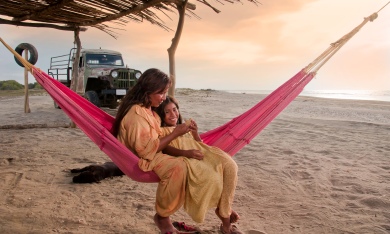Pristine waters in majestic fjords, lined by evergreen forests and a backdrop of snowcapped mountains. A bald eagle flies over treetops and a harbour seal peeks up from the waves.
To most B.C. citizens, these are not mere postcard pictures, but real memories that many of us, at least the lucky ones living near the coast, have experienced, travelling on one of the ferries.

“Your identity derives from the place where you have roots, where your origin stories are. Everything comes from the land,” says Jessie Hemphill, a young aboriginal woman who joined filmmaker Lisa Jackson and her crew on a boat trip to the homelands of her nation, the Gwa’sala-‘Nakwaxda’xw. Continue reading


